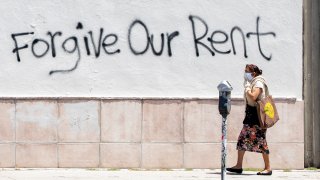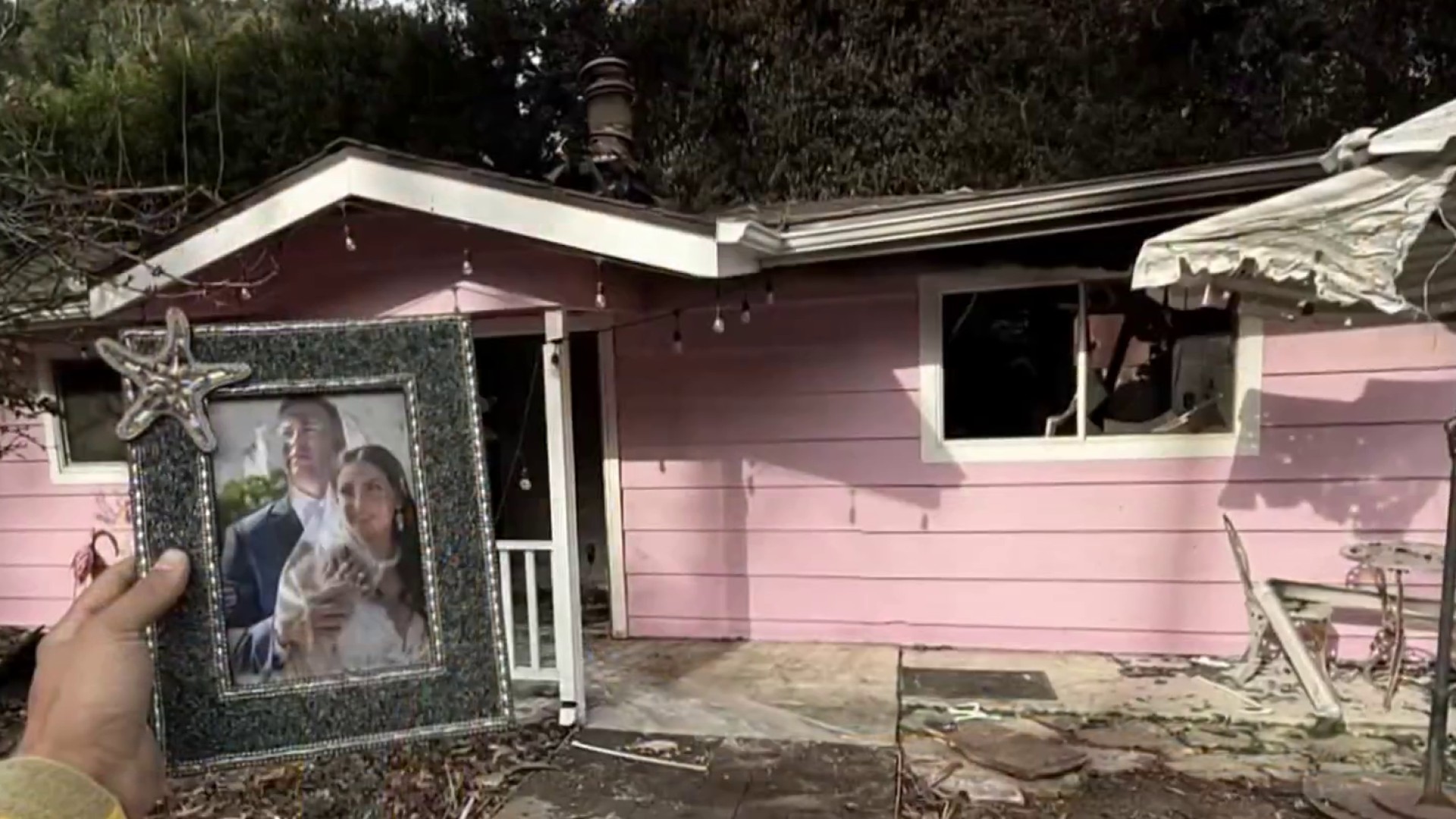
Gov. Gavin Newsom and legislative leaders from both the state Senate and Assembly agreed Friday on a proposed extension of the statewide eviction moratorium, through Sept. 30.
The eviction moratorium — put in place in March 2020 as an emergency measure related to the COVID-19 pandemic — was set to expire June 30, just five days after the agreement was announced.
Newsom and legislative leaders also agreed on paying 100% of back-rent owed by tenants who struggled to make rent payments during the COVID-19 pandemic, in an increase of relief funding.
The extension announced Friday will allow California to utilize over $5 billion in federal rental assistance through the summer, "to help the state’s tenants and small landlords and protect vulnerable households from eviction," a statement from Newsom read.
Get top local stories in Southern California delivered to you every morning. >Sign up for NBC LA's News Headlines newsletter.
Assembly Bill 832, "in print today" according to the Friday statement, enhances current laws to expand rental assistance, with 100% reimbursement for past due rent and future payments, for tenants and landlords.
The federal ban on evictions was extended for one month on Thursday, June 24, in what the CDC said is "intended to be the final extension of the moratorium.”
The LA County Board of Supervisors voted to extend the county eviction moratorium through the end of September on Tuesday, according to the LA Times, and the city's moratorium is in place until Mayor Eric Garcetti lifts Los Angeles's public health emergency declaration.
Local
Get Los Angeles's latest local news on crime, entertainment, weather, schools, COVID, cost of living and more. Here's your go-to source for today's LA news.
California has long been discussing if and how long to extend its own eviction moratorium, as tenants struggled to make rent payments in the wake of lost jobs, childcare and safety during the pandemic.
“The expectation for people to be up and at ’em and ready to pay rent on July 1 is wholeheartedly unfair,” Kelli Lloyd, a 43-year-old single mother who says she has not worked consistently since the pandemic began in March 2020, told the Associate Press.
Lloyd — a member of the advocacy group Alliance of Californians for Community Empowerment — is supposed to pay $1,924 a month for a two-bedroom, two-bathroom rent-controlled apartment in the Crenshaw district of south Los Angeles.
But she said she’s $30,000 behind after not working for most of the last year to care for her two children as day care centers closed and schools halted in-person learning.
That debt will likely be covered by the government. But Lloyd said she recently lost a job at a real estate brokerage and hasn’t found another one yet, and was worried she would be evicted if the moratorium expired.
Landlords also faced extensive financial pressure, the AP reported, as tenants behind on rent payments left them without hundreds of thousands of dollars.
“California is coming roaring back from the pandemic, but the economic impacts of COVID-19 continue to disproportionately impact so many low-income Californians, tenants and small landlords alike," Newsom said in a statement about Friday's agreement.
"That’s why I am thankful for today’s news from the Legislature – protecting low-income tenants with a longer eviction moratorium and paying down their back-rent and utility bills – all thanks to the nation’s largest and most comprehensive rental assistance package, which I am eager to sign into law as soon as I receive it.”



